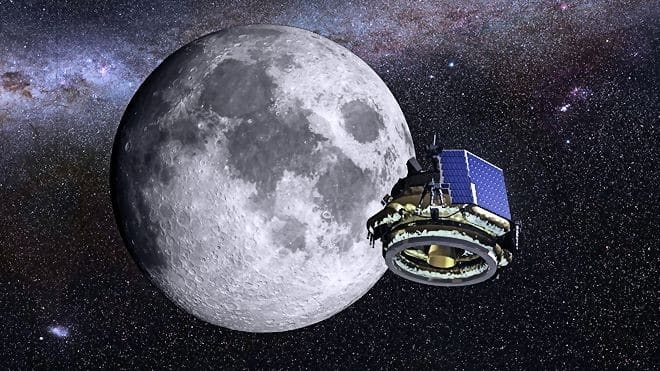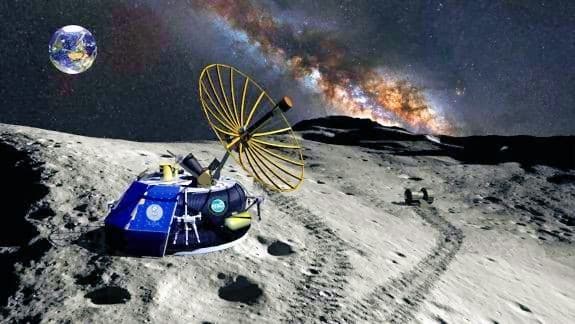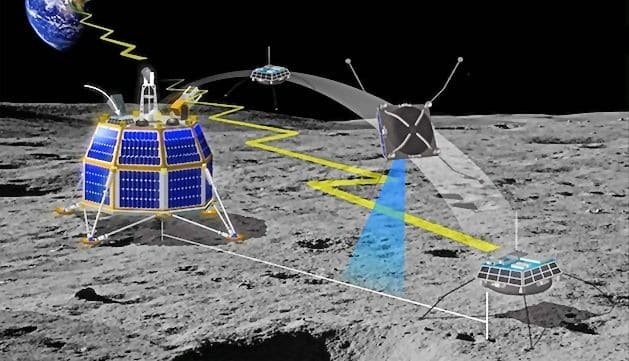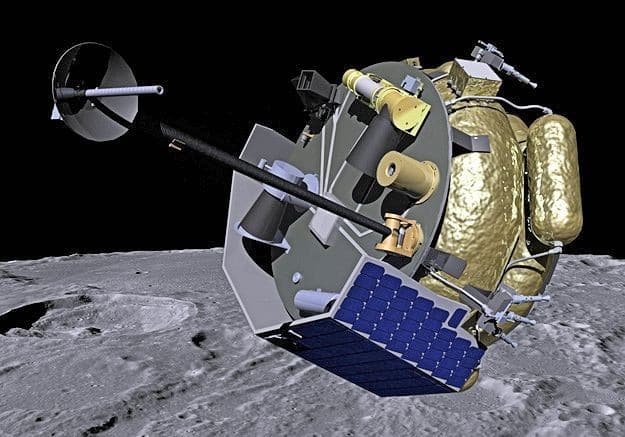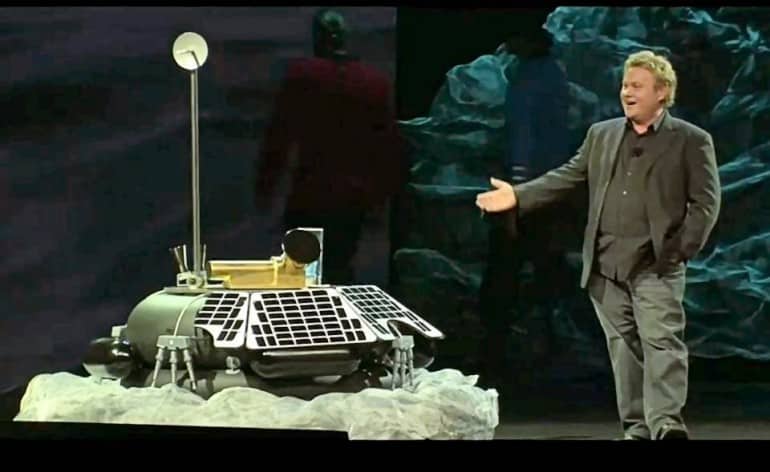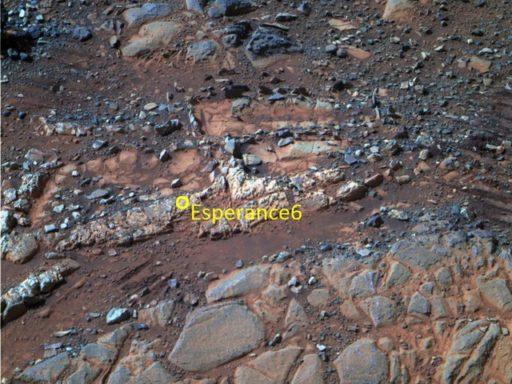To land on the Moon, lunar lander is a must. Last week, commercial space company Moon Express revealed the design of a lunar lander named MX-1 at Autodesk University in Las Vegas. Moon Express aims to send this lunar lander to the Moon in 2015.
The MX-1 is about the size of a large coffee table. It will weigh about 600 kg (1,320 lb). This lunar lander will have self-contained capability to reach the lunar surface from a geosynchronous transfer orbit.
What notable thing about MX-1 lunar lander is it will be designed to run on solar power and hydrogen peroxide-based rocket fuel. That means the cost of fueling its endeavors will be dramatically reduced — especially if the robot can eventually turn the frozen water on the Moon into usable fuel. This lunar lander will ferry scientific equipment to the Moon’s surface.
It is to be noted that the MX-1 is not intended simply to serve as a lunar lander. It is the basis for a flexible spacecraft that can support multiple missions ranging from acting as a smart upper stage for existing launch systems, satellite servicing missions, serving as a space tug, returning lunar samples to Earth, and, perhaps in modified form, taking on an important role in deep space exploration. Moon Express hopes to launch MX-1 lunar lander by 2015.
Bob Richards, founder and CEO of Moon Express, “Everything we fight about on Earth, all the resources are available in infinite quantities in space. Moon Express will utilize the MX-1 in its maiden technology demonstrator flight in 2015, delivering a number of commercial and government payloads to the Moon and pursuing the $30 million Google Lunar XPRIZE.”
Tech experts believe that MX-1 will create new chances for exploration for the researchers on Earth, while at the same time it will open the door for mining the Moon’s rare Earth minerals in the future.
Source: Moon Express Inc.
Thanks To:Gizmag
[ttjad keyword=”auto”]

